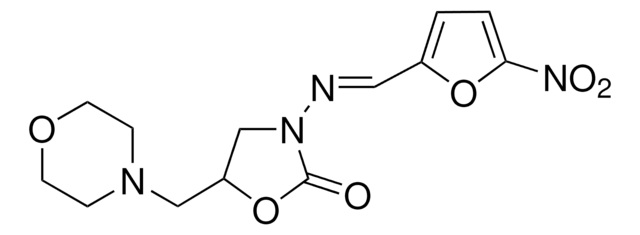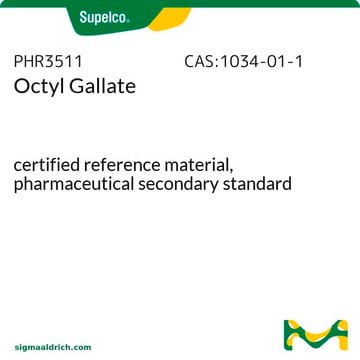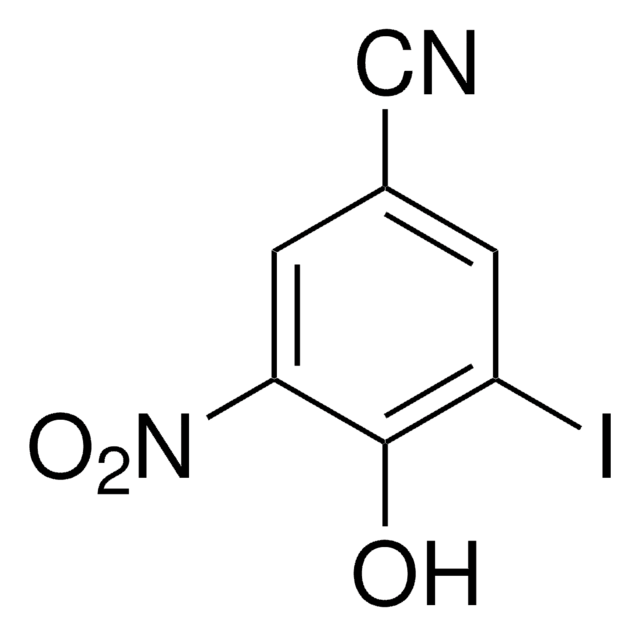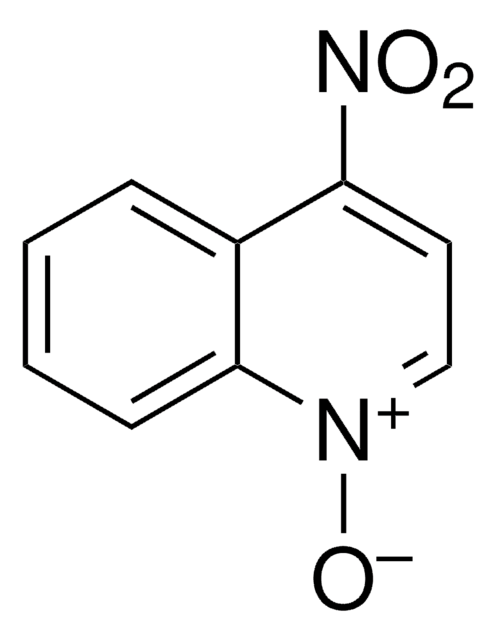46502
Nitrofurantoin
VETRANAL®, analytical standard
Synonym(s):
N-(5-Nitro-2-furfurylidene)-1-aminohydantoin, Furadoxyl, Nitrofurantoine
About This Item
Recommended Products
grade
analytical standard
Quality Level
product line
VETRANAL®
shelf life
limited shelf life, expiry date on the label
technique(s)
HPLC: suitable
gas chromatography (GC): suitable
antibiotic activity spectrum
Gram-negative bacteria
Gram-positive bacteria
application(s)
cleaning products
clinical
cosmetics
food and beverages
forensics and toxicology
personal care
pharmaceutical (small molecule)
format
neat
Mode of action
DNA synthesis | interferes
cell wall synthesis | interferes
protein synthesis | interferes
SMILES string
[O-][N+](=O)c1ccc(\C=N\N2CC(=O)NC2=O)o1
InChI
1S/C8H6N4O5/c13-6-4-11(8(14)10-6)9-3-5-1-2-7(17-5)12(15)16/h1-3H,4H2,(H,10,13,14)/b9-3+
InChI key
NXFQHRVNIOXGAQ-YCRREMRBSA-N
Looking for similar products? Visit Product Comparison Guide
General description
Application
Legal Information
Signal Word
Danger
Hazard Statements
Precautionary Statements
Hazard Classifications
Acute Tox. 4 Oral - Resp. Sens. 1 - Skin Sens. 1
Storage Class Code
11 - Combustible Solids
WGK
WGK 1
Personal Protective Equipment
Choose from one of the most recent versions:
Already Own This Product?
Find documentation for the products that you have recently purchased in the Document Library.
Customers Also Viewed
Our team of scientists has experience in all areas of research including Life Science, Material Science, Chemical Synthesis, Chromatography, Analytical and many others.
Contact Technical Service




![Benzo[a]pyrene ≥96% (HPLC)](/deepweb/assets/sigmaaldrich/product/structures/253/820/be96d879-1811-46c0-8f11-612019691c2d/640/be96d879-1811-46c0-8f11-612019691c2d.png)






